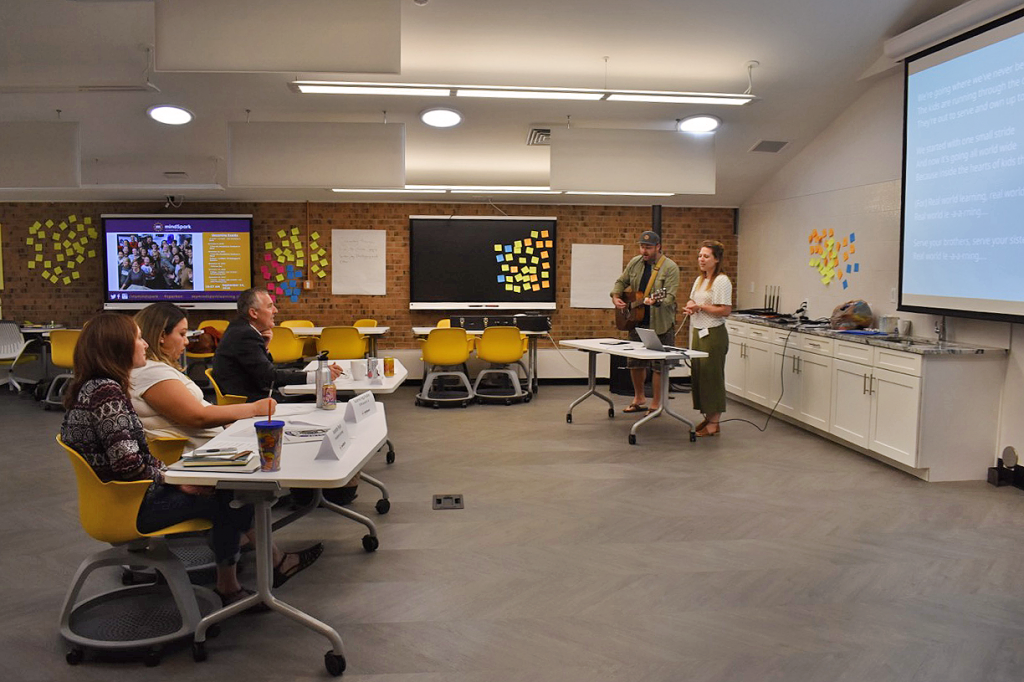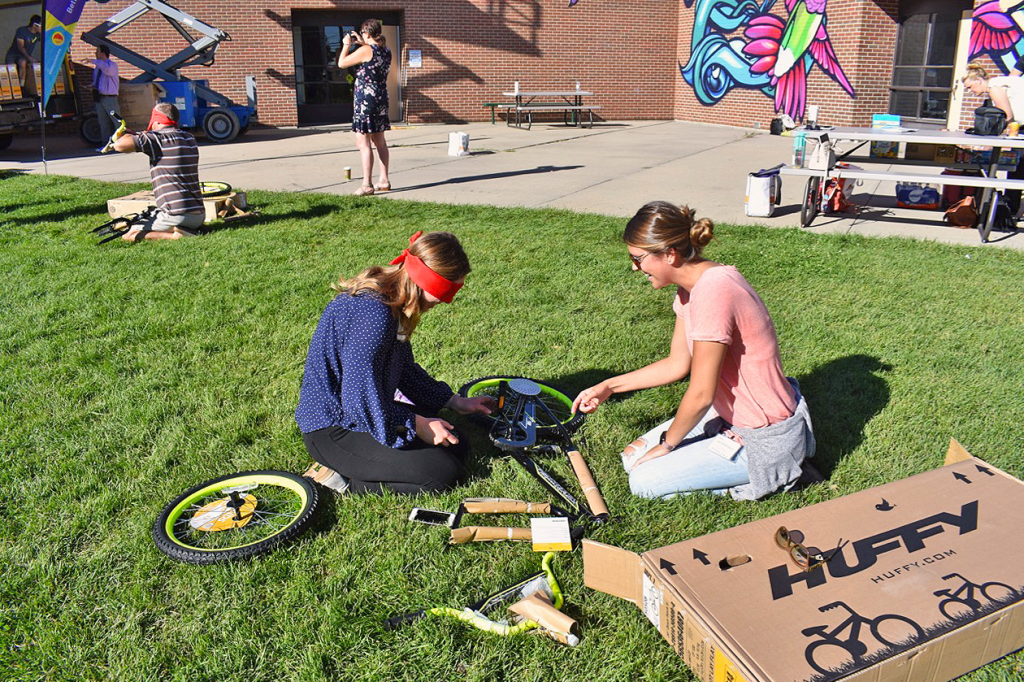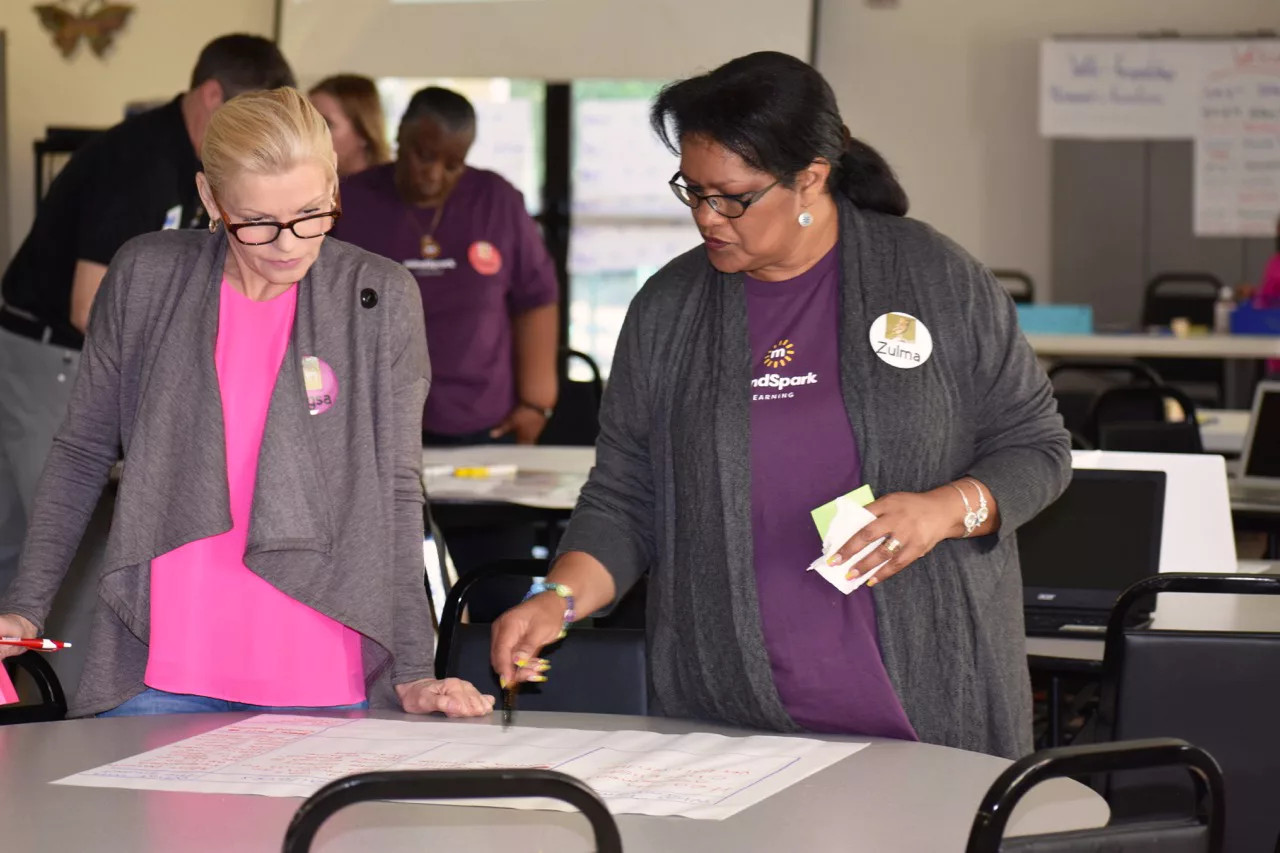Globally, researchers predict that 85 percent of the jobs that will exist in 2030 haven’t been created yet. That gives educators little more than a decade to prepare the future workforce for positions we can’t imagine now. To better prepare our youth, we need to rethink education. Rather than seeing education as a “system,” confined to the bureaucratic barriers that govern it, it’s time to see education as an entrepreneurial venture by linking schools, educators, and students to industry.
With an explicit connection between what students learn in the classroom and the skills they need to be successful in the modern world, there’s room for growth and fluidity. What affects students more than educators and their teaching methods? The future of the workplace is dependent on strengthening relationships among communities, industry, and schools — and re-engineering the way we prepare our educators to teach.
Rethink education: An entrepreneurial solution to longstanding educator challenges
Common problems that have plagued our nation’s schools for decades include decreasing literacy and math scores, unsatisfactory graduation rates, low teacher retention and job satisfaction, poor enrollment numbers, and tight school budgets. These challenges often hinder the way educators teach and limit resources that are available to them.
Startup models and sound business practices shouldn’t be reserved for business — the economy of education is the economy of tomorrow. Ideally, what would this look like? To start, immersion in workshops focused on collective genius, S-curves, impact instinct, and conscious leadership are all vital factors we can leverage to better prepare our educators for teaching the future workforce.
Throwing educators headlong into robust, conflict-laden, long-term experiences centered on disruption and dissonance paves a bright path to innovation, creativity, honesty, and transformation. When schools create agency, share a stronger narrative, consider their marketing and financial strategy with a more trans-disciplinary lens, and realize they are generators of wealth, the traditional problems that have troubled schools begin to unravel.

mindSpark Learning’s Education Accelerator (EA) is a long-term program for school leaders to address their problems of practice, create cultural change, and forge sustainable relationships with industry and community leaders.
Establishing education accelerators to solve school issues
The most viable solutions in education come from robust and organic partnerships with industry and community. mindSpark Learning, a Denver-based national nonprofit, created the Education Accelerator (EA) as a long-term program for school leaders to address their problems of practice, create cultural change, and forge sustainable relationships with industry and community leaders.
Through the four EAs mindSpark Learning hosted in 2018, the organization reached 165 educators across 40 schools and worked with over 38 businesses and community organizations. The results are inspiring. Cohort feedback consistently reveals three major findings:
- The program trainings go well beyond the “sit and take notes” style of learning. They’re hands-on, delving into real-world issues while providing an opportunity for social good within the community.
- Sessions dig into the root of an individual school’s specific problems, giving educators an opportunity to problem-solve challenges and leverage their own resources and talent.
- On average, 97 percent of EA participants believe their lessons learned will positively impact student outcomes.

EA participants dig deeply into their challenges, engage in entrepreneurial workshops, and support each other.
Let’s take a deeper look at two examples.
The Dunnellon, Florida, EA hosted 24 diverse female daycare providers. mindSpark Learning brought in seven strategic community partners, including economic development centers, Lockheed Martin, and Zappos, to aid these educators in ensuring 3- to 4-year-olds are school-ready and infusing STEM (science, technology, engineering and math) at an early age. Working together, the cohort learned how to become more successful business owners. As groups worked on solutions for their daycare’s problems, participants reported:
- Feeling more confident in their career paths and teaching abilities
- Increased instructional practices in math, language arts, engineering, and science
- A stronger executive presence and communication skills, resulting in better relationships with staff, students, and parents
These educators impacted 1,200 children, as well as countless community members who came to know their work. Additionally, Dunnellon’s EA changed the trajectory of these participants’ lives:
- Many are seeking higher education degrees to better prepare them to grow their businesses and support their students.
- Two women are dedicated to starting their own daycare center with a play-based approach to STEM topics.
- Evaluations following the EA found that center leaders are better listeners and more attentive to staff needs.
The ongoing Anschutz EA is a diverse cohort made up of 45 educators from public, private, charter, and religious schools across Colorado. Participants are digging deeply into their problems of practice, engaging in mindSpark Learning’s entrepreneurial workshops, and supporting each other. Twenty community partners are involved to date. Each session involves a strategic disruption event, where educators are giving back to their communities.
As educators define their problems of practice, they will develop blueprints that look a lot more like a startup business plan than a traditional education plan, with clear next steps that can be executed over the next several months.

Each EA session involves a strategic disruption event, where educators give back to their communities.
Leading the future of education
With these successes in 2018, mindSpark Learning aims to launch multiple EAs across the country in 2019. Thriving education is not only the responsibility of communities. It is imperative to a new paradigm of a human revolution in which we leverage emotional intelligence, conscious leadership, and an entrepreneurial foundation to change the conversation.
The partnerships forged in programs such as the Education Accelerator result in schools leaning into innovation and becoming more entrepreneurial to benefit school staff, students, and ultimately the community. When industry engages schools and students in authentic and relevant work, youth will be better prepared for their career paths of choice.





